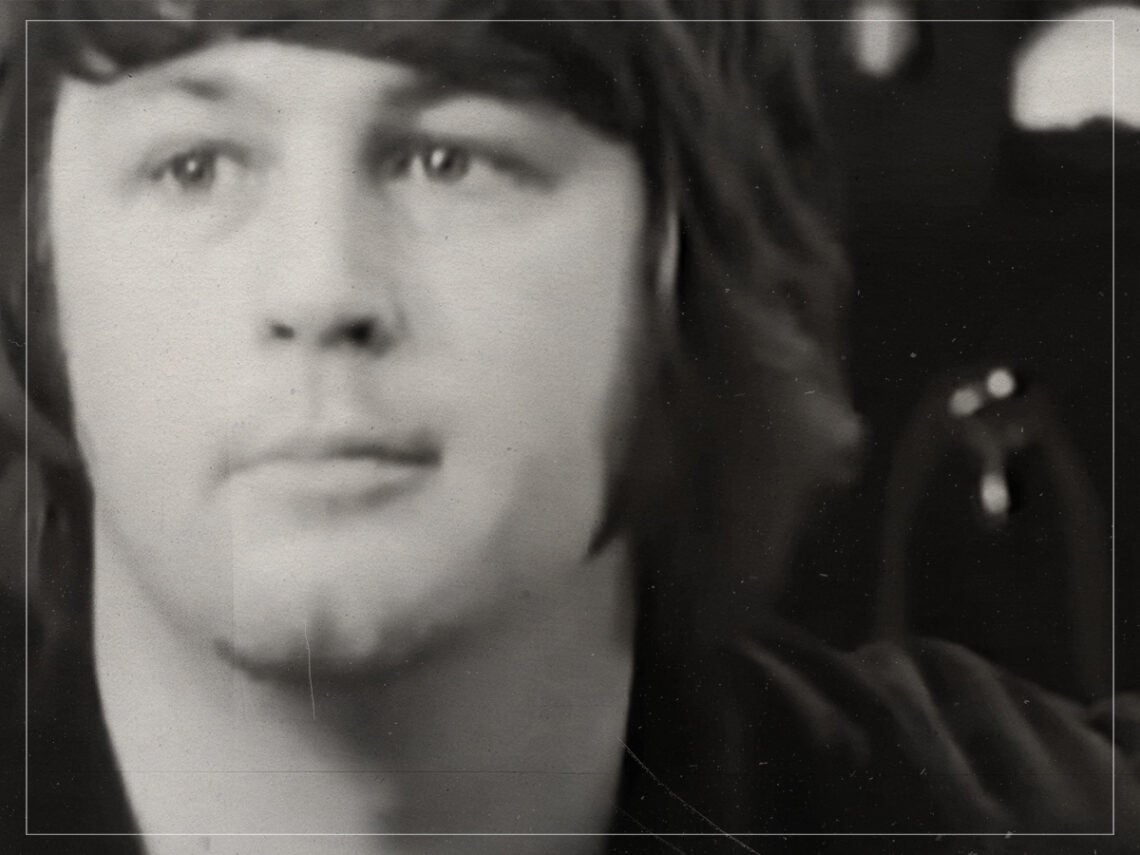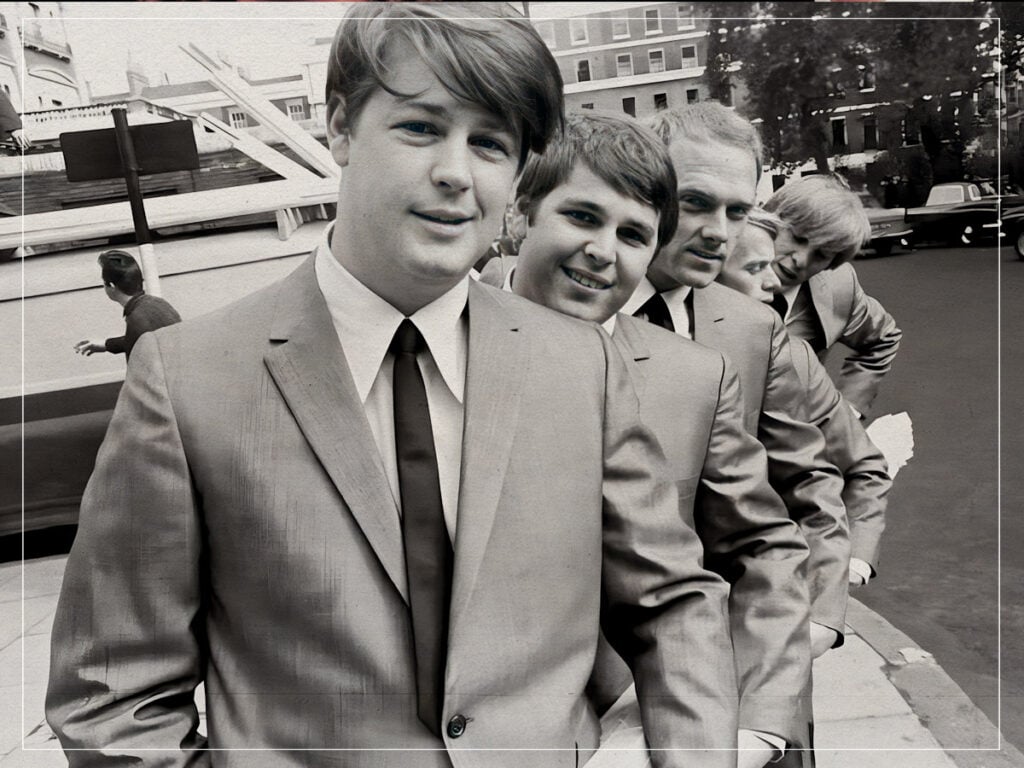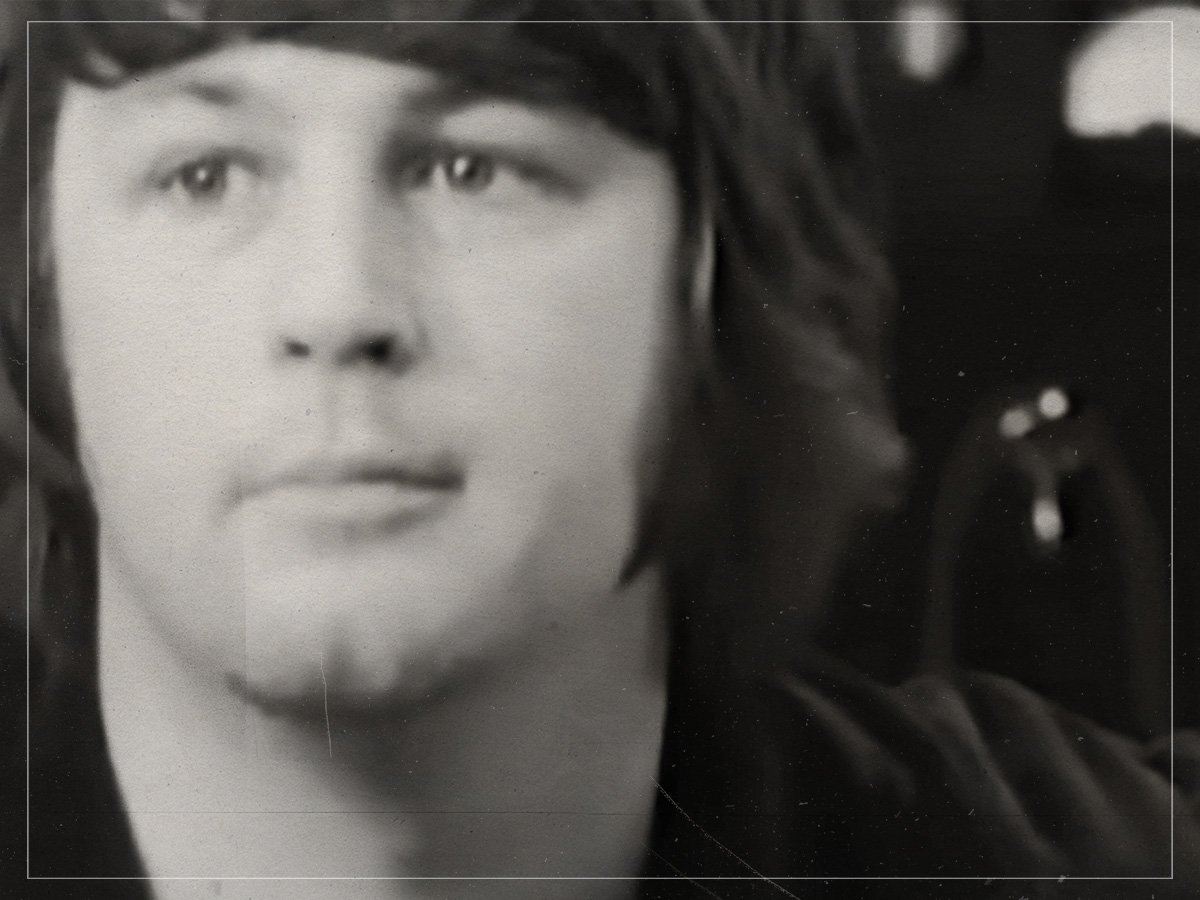
(Credits: Far Out / YouTube Still)
Tue 4 November 2025 11:27, UK
At the start of the 1960s, things seemed to operate in black and white. Although rock and roll had started to slowly take over the world, watching Elvis Presley join the military and Little Richard becoming a preacher felt like a huge step backwards for what was once considered the dangerous side of music. While there was nothing unsafe about The Beatles, Brian Wilson saw something beyond just pop tunes underneath that moptop hair.
While others were captivated by the band’s dry wit, affable nature and unabashed devotion to the art of being cheeky, Brian Wilson was inspired to begin his only musical revolution. Having previously found the harmonising singing groups, his main source of inspiration, such as The Four Freshmen, he now had a new set of muses.
Coming out around the same time as the Fab Four, Wilson was already making a name for himself as the resident genius behind The Beach Boys, pumping out one ode to California sunshine after another like ‘Surfin Safari’ and ‘Little Deuce Coupe’. Although Wilson did have a core set of influences initially, things began to change when he heard The Beatles for the first time. They operated in a new field; their perspective was so vastly different from his own that he was enlightened by their sheer presence and put his unique ear to good use.
Upon first release, Wilson admitted to being intimidated by the group, thinking the lads from Liverpool would put him out of business once they performed in America. While there may have been competition, Wilson figured that he would try to learn a few tricks from what the group were doing with their arrangements.
Liking the sounds of their middle period, Wilson came up with the song ‘Girl Don’t Tell Me’, which appeared on the band’s next album, Summer Days and Summer Nights. Sung by Carl Wilson, this would be one of the first times that Wilson’s love for the Fab Four was apparent.
 The Beach Boys in 1964. (Credits: Far Out / Alamy)
The Beach Boys in 1964. (Credits: Far Out / Alamy)
In his memoir I Am Brian Wilson, Wilson recalled the differences in the arrangement being similar to The Beatles’ style, explaining, “I had written it with John Lennon in mind. I even thought about giving it to the Beatles. People said it sounded like ‘Ticket to Ride,’ but I didn’t mean for it to sound like any one song of theirs.”
Of course, influence like that is a natural occurrence. The Beatles were finding their own way onto almost every airwave in existence, so escaping their music would have been difficult for any regular Joe, let alone an avid music fan or fan of the band. So, Wilson’s work was being infiltrated by the group’s sheer presence.
Sung by Carl Wilson, this was the first time Wilson eschewed the usual vocal harmonies of The Beach Boys in favour of a stripped-back performance. The Beatles had left a mark on Wilson during the Help! era, it wasn’t until their next project that Wilson began to see them as competitors, and their upcoming album would start one of the most lucrative chain of event sin music history.
After being knocked out by the band’s drastic switch in style on Rubber Soul, Wilson knew he wanted to create songs that could equal what his British counterparts had done. Working away in the studio, Wilson would give birth to Pet Sounds, putting pop music on the same level as professional music, with intricate arrangements across songs like ‘God Only Knows’ and ‘I’m Waiting For the Day’.
As Wilson painted his masterpiece, The Beatles would eventually try to outdo what The Beach Boys had done, crafting Sgt Pepper as a worthy successor to what Wilson had achieved. Although Wilson was determined to take his music one step further, he even admitted that he could never equal the massive genius that went into recording songs like ‘Strawberry Fields Forever’. Wilson may have seen The Beatles as competition in those days, but it was only a matter of time before the Fab Four started to steal a few tricks from him as well.
Related Topics
The Far Out Beatles Newsletter
All the latest stories about The Beatles from the independent voice of culture.
Straight to your inbox.

